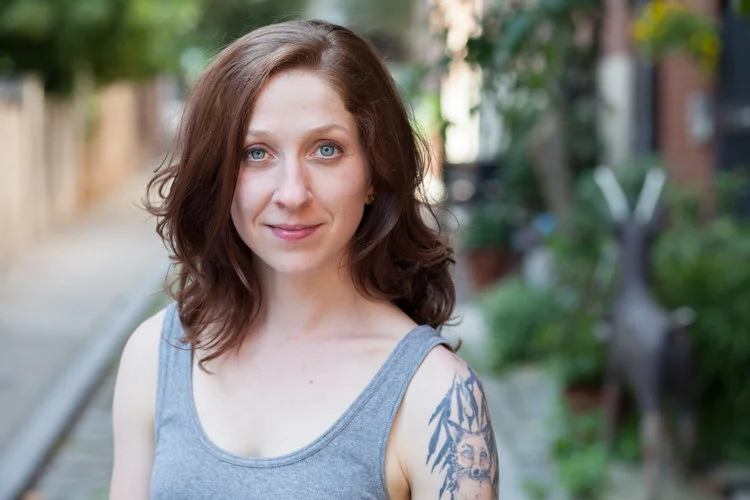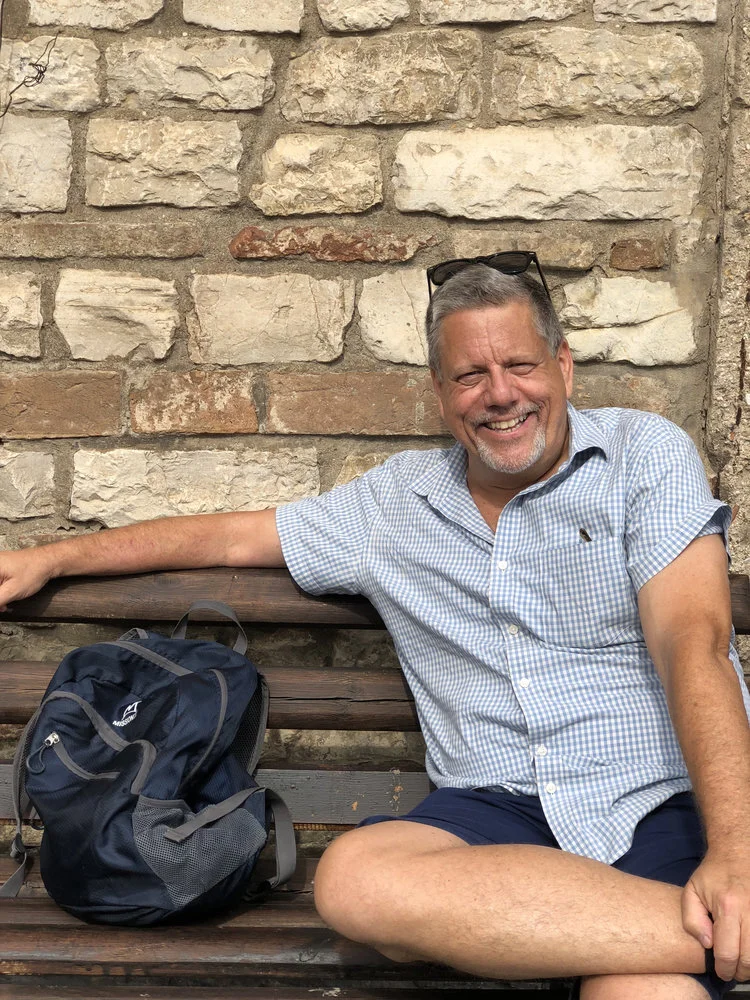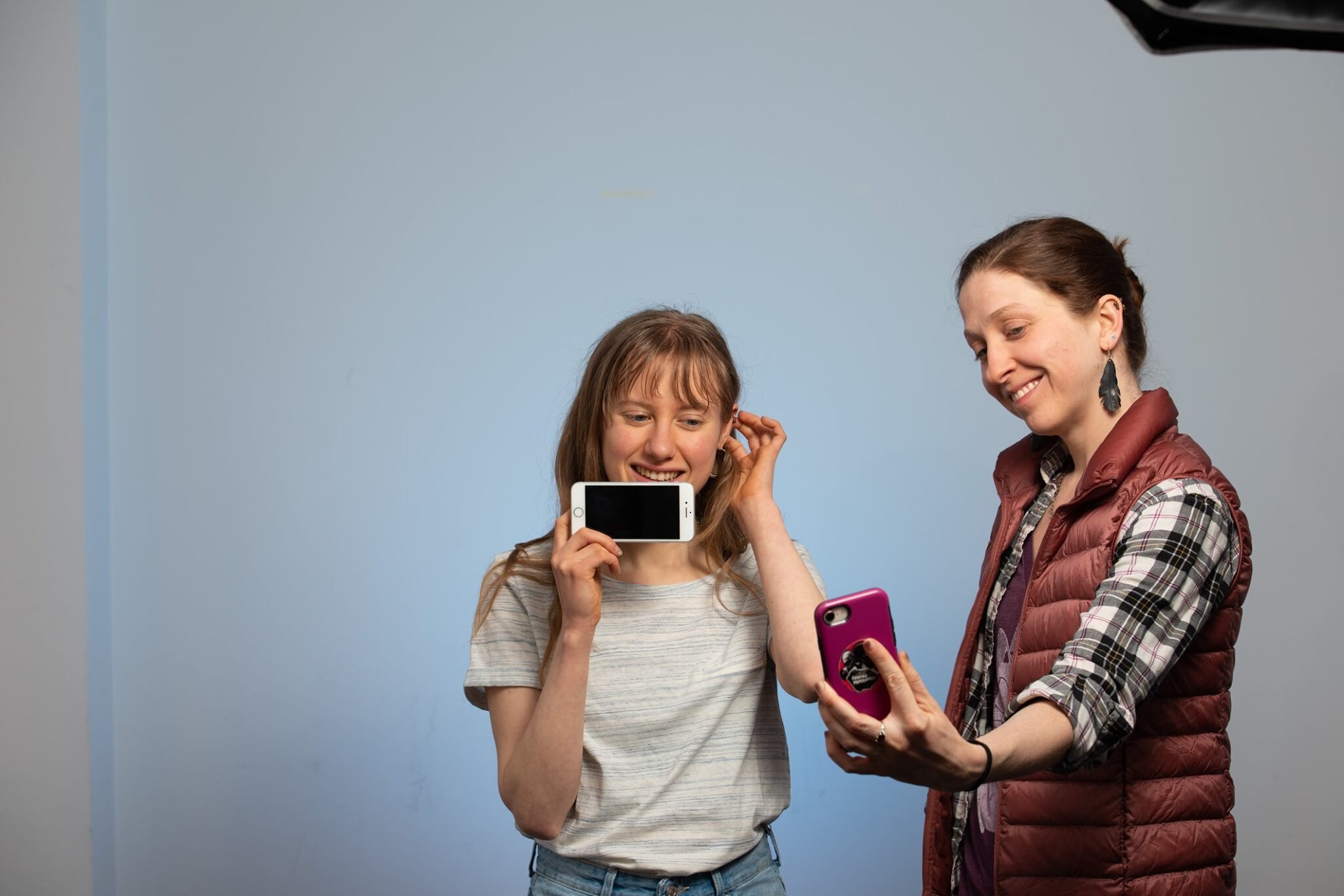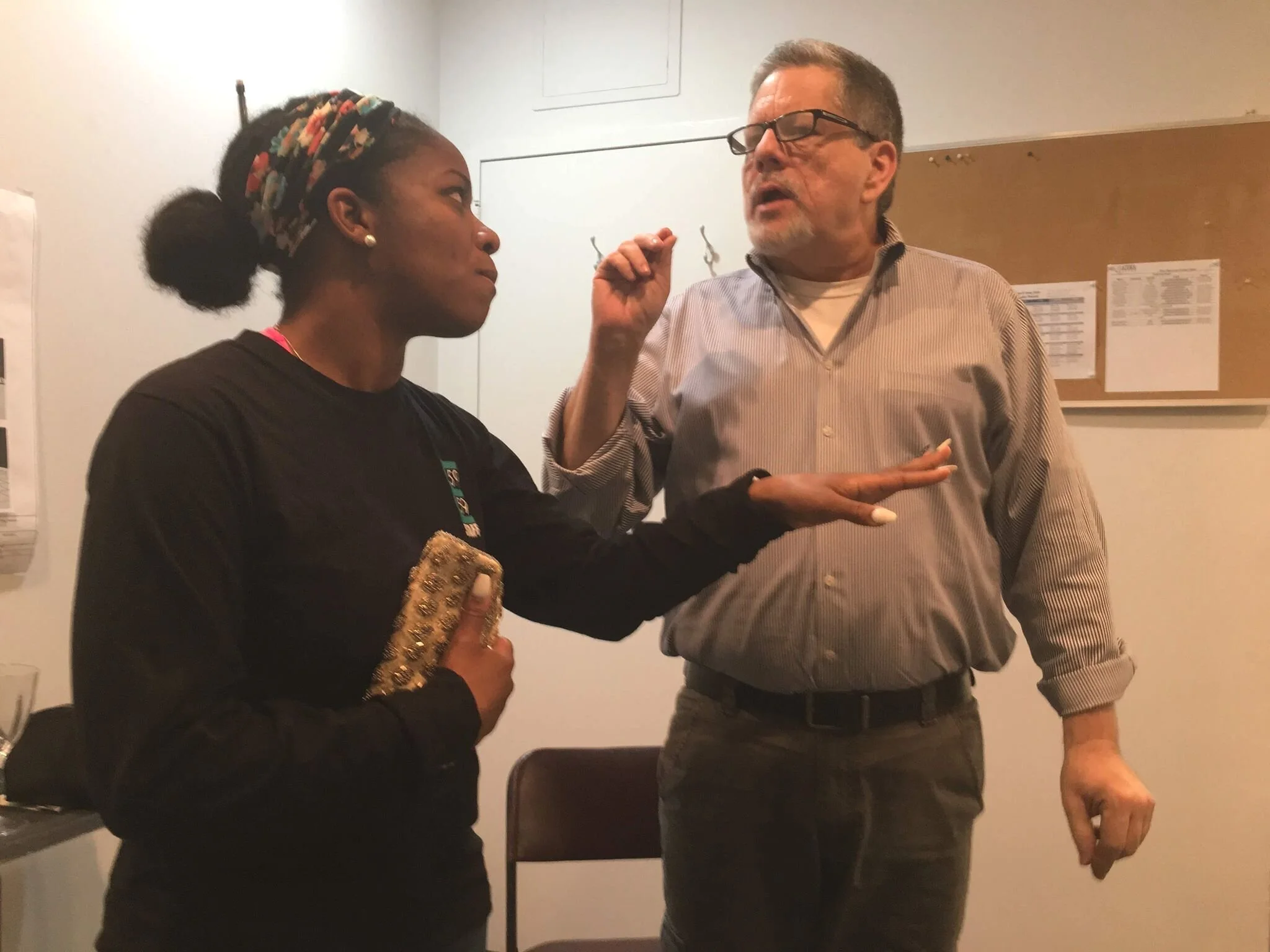Theater Directors on Life & Art in Lockdown (feat. Kevin Glaccum & Maura Krause)
Hello, outcasts and underdogs —
We hope you are all well and staying safe. Tonight would have been opening night of A Room at the Flamingo Hotel, and we are really missing seeing you all at the theater right about now!
The entire industry — from all of our friends here in Philadelphia, to Broadway itself — is obviously being severely impacted by the pandemic. (To read our official statement on the postponement of our season, and how you can support us, click here.) So to give a backstage perspective on some of the challenges being faced — and adapting being done — our Producing Artistic Director Kevin Glaccum and Artistic Associate Maura Krause answered a few questions, specifically regarding what one shared role of theirs looks like in this time: directing.
How long have you both been directors and/or teachers of directing?
Maura Krause
MAURA: This year marks a decade in professional theatre for me, although if we’re all friends here, it’s true that I have been directing since the sixth grade. (No seriously, I wrote and directed my sixth grade class’s annual play… I’m a dork.)
I don’t formally teach directing, but I love discussing the practice and am always around to talk to early-career or early-craft directors, should they ask.
KEVIN: I’ve been directing theater since 2001; my first production was Sincerity, Forever by Mac Wellman. Since then I’ve directed over 25 productions. I’ve been teaching directing at Arcadia University for about 10 years.
How have you been spending this time; are you still teaching? How are you staying connected to Azuka and the theater scene and what conversations are you having?
Kevin Glaccum
KEVIN: I was half way through the semester with my directing class when the shutdown was announced, so we finished the semester online. It was very challenging for both the students and me. The way I normally conduct the class, and what I had done for the first half of the semester, was have students select two-person scenes and then stage them, using their fellow classmates as cast members. That way I can focus on blocking a scene as well as what the director might say to an actor to have the scene to the way they’re envisioning it. Since that wasn’t really possible via Zoom (though we did do read-throughs of everyone’s second scene, and directors were able to talk about motivation, objectives, etc. with their casts) I had the students focus on what a director does before the first day of rehearsal. I asked each of them to create a Pinterest board for their shows, posting pictures of what they thought the set might want to look like, ideas for the characters’ costumes, and even art and music that might not make it into the production, but could be used as inspiration for the cast and designers.
MAURA: To be very frank, I find engaging with theatre a little painful at the moment, sometimes in a bad way and sometimes in a good ache kind of way. I love being in touch with my theatre family, including seeing Azuka staff every Monday, but the idea of directing performance virtually is daunting. I actually did it for a developmental reading of Julia Izumi’s wonderful play Sometimes the Rain, Sometimes the Sea at Villanova a few weeks ago, which went astonishingly well and was indeed fun; although, I do think it succeeded because the play was a chaotic and effervescent comedy, which is well-suited to what I find to be the inherent goofiness of Zoom performance.
I am in the midst of a number of discussions about plays I’ve worked on or will be working on — several dramaturgical conversations and one more production-minded — and I still find those deeply exciting and pleasurable. I think with the lack of in-person capability, I’m retreating into a focus more on text of all kinds, from plays to novels to my own scribbling. I think all forms of artistic engagement make us better creators in our mediums, so even a more solitary preoccupation feels like it connects to me to Philadelphia’s artmaking community.
Alison Ormsby and Maura behind the scenes of last year’s Boycott Esther, which earned Maura a Barrymore nomination for directing
What are the biggest limitations of directing and/or teaching directing in a digital setting?
MAURA: There are some obvious ones, such as the inability to create a physical vocabulary or dynamic between actors, and the complete lack of blocking. Robert Woodruff once told me that most of a director’s job is deciding how close or far apart actors should stand — now it’s 6 feet, if at all!
The thing that is hardest for me though is not being able to read micro-cues from my actors. I try to be responsive to the people I work with, and sometimes I see an actor have an impulse that they put away because they think “oh, it’s not what my director asked for.” And I usually push them about it, because their idea might be better, and I want to give us the opportunity to try it out! I can’t see those impulses nearly as much on video, because video flattens everything. Also, I have NO idea how actors are taking my notes when we’re virtual, which cuts off potentially fruitful conversation.
KEVIN: The lack of physical proximity is clearly the biggest impediment; so much of the story of a scene can be told by where the actors are placed in relationship to one another. Having people read scenes online provides only a portion of what a fully realized scene could achieve; it’s a bit like working on a radio play.
A lot of conversations are happening about what theater will look like going forward through those limitations. As a director, how have you begun to adapt, or think about how to adapt, to the new normal?
KEVIN: For me, the greatest aspect of the theater is being in the room with other people AND the storytellers as the story is being told. There are any number of ways you can get a story: a book, a movie, a TV show, but only theater places you in the same space with the people telling the story, and that’s a magic that can’t really be duplicated. I’m not sure what the new normal looks like for theater, but I for one would be happy to wear a mask and bring my own hand sanitizer if it meant I got to watch a play!
Danielle Leneé and Kevin in rehearsal for 2018’s Mrs. Harrison
MAURA: I really love my job, and for me the heartbeat of it lies in sharing stories, in shared rooms. So, I am only slowly beginning to think about how to adjust my theatre work to the new normal, and most of the time when I don’t think of it as “theatre” I feel more excited. I like thinking about virtual connection and the magic of domestic spaces, which is where so many folktales and narrative songs were shared. I like thinking about how we’re all in our kitchens and how this is a moment of wide-reaching shared experience. I’m thinking about how comedy seems to translate in unexpected and good ways to Zoom, and I’m thinking about surrealism in art because we’re suffused with surrealism in life right now. I’m thinking about how one-person shows keep our attention. I’m thinking about LARPs, and choose your own adventure theatre, and how much delight I got out of the active chat box during that reading of Sometimes the Rain, Sometimes the Sea. (That was Julia’s brilliant idea to get some sense of reactions despite needing audience to be muted!)
Do you think this time will permanently change the process of directing? Or how you personally direct? Based on the challenges faced, and perhaps overcome, during isolation?
MAURA: The process of directing is always changing. Every director directs differently, not just from each other but from themselves even five years ago. I am constantly trying to evolve my practice. So I think this coronavirus situation will change my directing, but probably no more than my directing would have been changed by the process of A Room at the Flamingo Hotel, had it been possible. Plus, I pretty fervently believe that intense experiences find their way into who we are as artists — and this experience is pretty damn intense.
KEVIN: I think there are so many factors still at play when it comes to the pandemic that we won’t have those answers for a little while yet. Obviously, everyone’s health and safety come first, so making sure actors feel safe in a room with other actors would be the first hurdle, then allowing audiences in would be the next one. But I firmly believe that this art form will come out on the other side of this virus, and I think there will be audiences there eagerly awaiting our return!
We cannot wait to see you all again when that time comes ; whenever that may be, and whatever it may look like — we will be there!
And in the meantime, in case you missed it: While Azuka misses sharing space with all of our artists, we are delighted to be using this time to get to know their solo art practices! Visit Art from the walls of Azuka to see these multi-talented creators and consider supporting their work, since you can't see them at the theatre right now.
And please keep in touch — we would love to hear how you are spending your time and engaging with art during lockdown.
Stay safe! #WeWillReturn




